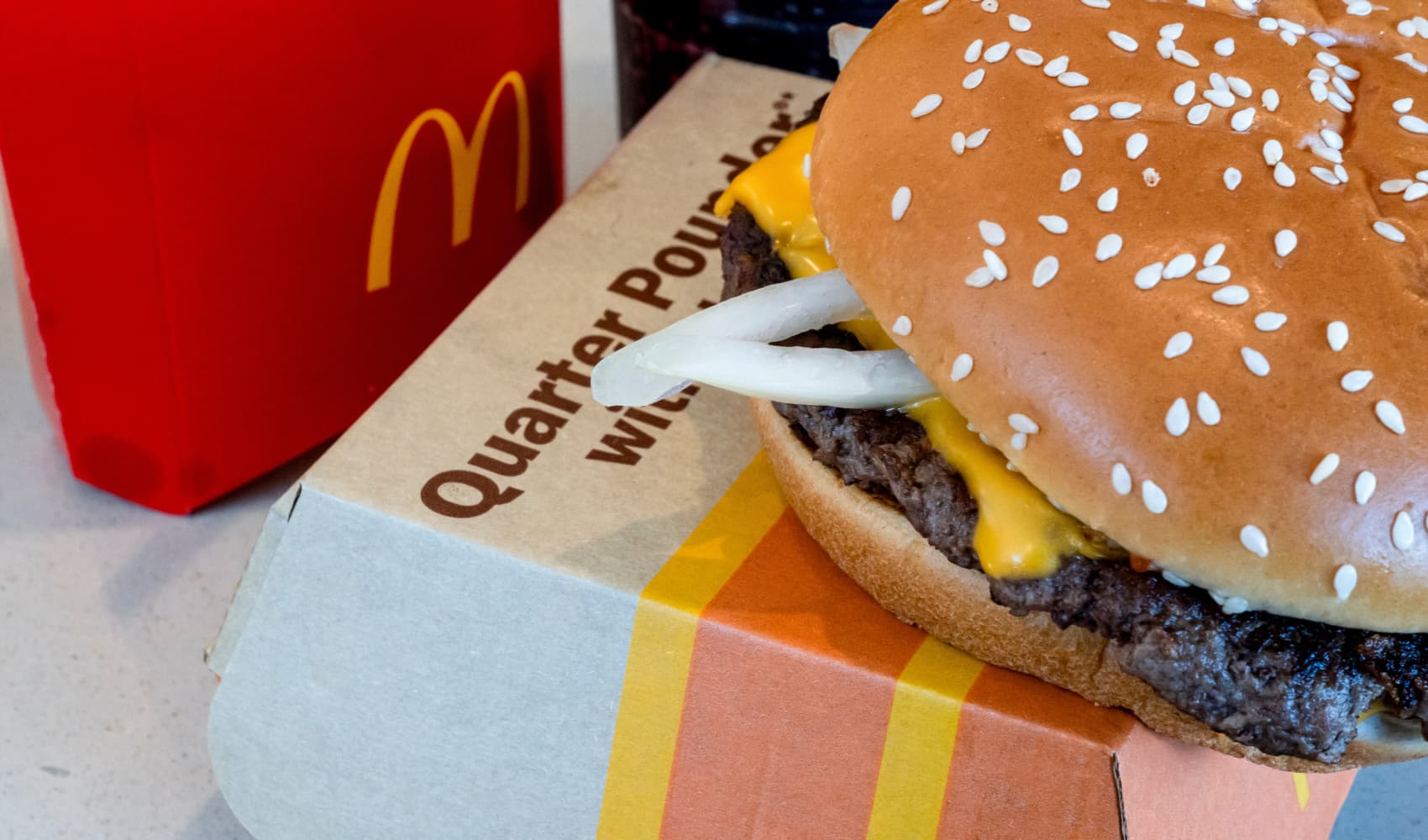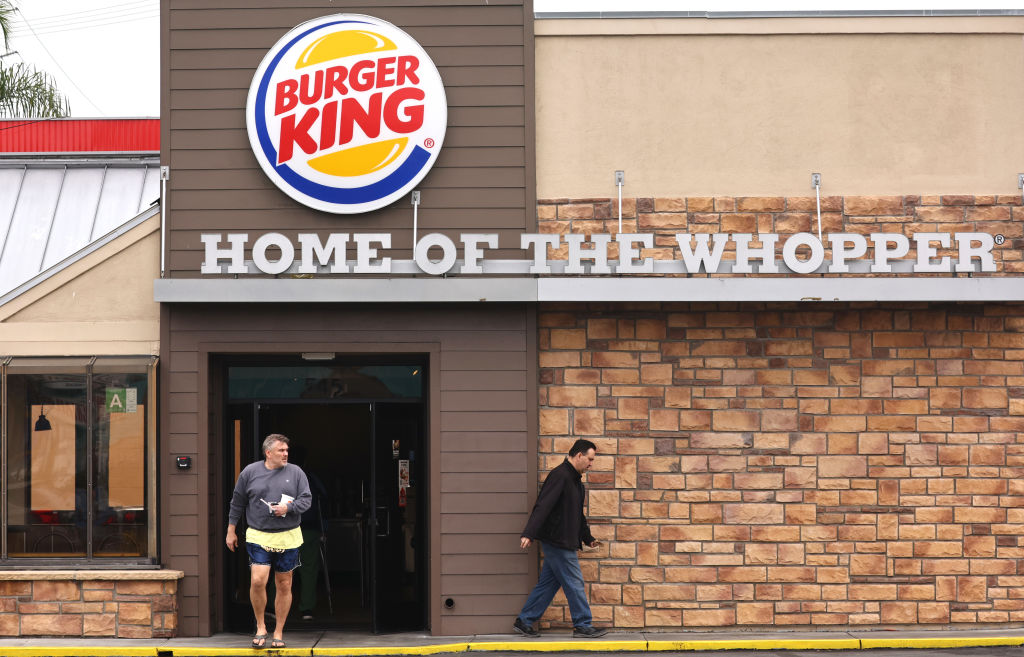- Amid the E. coli outbreak believed to be linked to onions served at McDonald’s, food safety experts say some types of fresh produce carry extra risk.
- Many avoid eating alfalfa or bean sprouts, as well as packaged salad greens and cantaloupe.
- Precut and prewashed produce can be especially risky, they said.
An E. coli outbreak that has sickened at least 75, killing one, is a reminder of the contamination risk that can plague certain types of fresh produce, according to food safety experts.
The four professors said they routinely avoid particular raw fruits and vegetables themselves, such as sprouts, bagged salad greens and cantaloupe.
Though the investigation is ongoing, federal officials suspect prewashed, slivered onions that were served raw on McDonald’s Quarter Pounders are the likely source of the E. coli outbreak. For those who specialize in foodborne illness prevention, the news was not a surprise.
Don Schaffner, a professor of food science at Rutgers University, said that the more food is handled and processed on its journey from the farm to a restaurant or grocery store, the more opportunities there are to introduce or spread bacteria. That includes slicing, prewashing or adding ingredients.
“The more manipulation you do, certainly the more places there are for things to go wrong,” Schaffner said.
By nature, when fruits and vegetables are served uncooked, there’s no opportunity to heat away bacteria. This has contributed to past E. coli outbreaks linked to produce, including a 2006 outbreak in prepackaged baby spinach that sickened over 200 and dozens of instances of E. coli and other foodborne illnesses that have been associated with contaminated sprouts. Cantaloupe also has been contaminated with pathogens, including salmonella and listeria.
“If you look at just the sheer number of outbreaks and recalls over the last 15 years, we typically see more cases of E. coli tied to produce,” said Darin Detwiler, a professor of food regulatory policy at Northeastern University.
Although there were serious E. coli incidents decades ago in meat — including an outbreak linked to Jack in the Box hamburgers that made hundreds of people ill and killed four in the early 1990s — changes to federal regulations and a better understanding of proper cooking temperatures needed to kill off the bacteria have reduced those cases.
Barbara Kowalcyk, director of the Institute for Food Safety and Nutrition Security at the George Washington University Milken Institute School of Public Health, said that she makes an effort to avoid eating bagged greens, sprouts and cantaloupe. Bags or containers that hold lettuce or other leafy greens can seal in bacteria and create an environment for it to proliferate, she said, so for salads, she opts for heads of lettuce at the grocery store instead.
“Any leaf that is torn or damaged, I just throw it away, because that’s how the bacteria can get in there,” she said. “And I usually take the outer leaves off and discard them.”
She then thoroughly washes and dries the lettuce.
“The key is running water and using a clean paper towel to dry it,” she said. “The bacteria are kind of sticky, and friction is what gets them off.”
Schaffner said previous E. coli outbreaks involving prewashed, leafy greens resulted from not enough chlorine in the water as they were being rinsed. With sprouts, it’s a different concern, he said: The seeds are exposed to warm temperatures and, as they sprout, release nutrients into the water that allow bacteria to grow.
Cut melons, meanwhile, can be a common breeding ground for pathogens, especially if they’re left sitting out.
“I do a lot of workshops, and they often have cut fruit on the breakfast buffet, and that fruit just sits there all day long,” Schaffner said. “We’ve done research to show that the physical appearance of it doesn’t change, but it can grow bacteria like nobody’s business.”
Detwiler is particularly careful to avoid cantaloupe because of its webbed rind, where bacteria can easily hide.
“It’s one of the most deadly pieces of produce out there, of all things,” he said. “Cantaloupe has a perfect pH, and you can’t clean the outside enough.”
E. coli spreads in the environment through animal or human feces and from there can contaminate food and water. While significant improvements in agriculture have minimized the spread of pathogens on fields where produce is grown, experts said it’s still important for consumers to consider the risk of E. coli — particularly for young children, individuals over 65 and anyone with a compromised immune system, including those who are pregnant.
“This is a really unique pathogen, because there’s a very low infectious dose. So it can take only a few cells to get someone very sick,” said Kali Kniel, professor of microbial food safety at the University of Delaware.
The food safety experts interviewed also said they steer clear of rare or undercooked meat, poultry, fish and eggs, and don’t drink unpasteurized milk.
Some mentioned, as well, that they look for signs of cleanliness when dining out.
“If I go into a restaurant that I’m not familiar with, one of the first things I do is I go to the restroom, because if the restroom looks horrible — like no one’s cleaned it in a long time — I don’t even want to know what the kitchen looks like,” Detwiler said.
That said, fast-food restaurants are generally not a hotbed for foodborne illnesses, and Detwiler said McDonald’s has a “long history of being a very prominent leader” in food safety.
Kowalcyk agreed, adding that as a large chain, McDonald’s likely has more procedures in place to train employees on contamination prevention.
“I don’t really think any particular type of restaurant would be more risky than others, except that large organizations tend to have a lot of resources, and smaller organizations tend to have fewer resources or expertise,” she said.
Raw onions have not previously been known to be linked to an outbreak of this particular strain of E. coli, according to the Centers for Disease Control and Prevention. But onions have been contaminated with pathogens in recent years: Salmonella outbreaks have been tied to them.
Kniel said she expects improvements to be made as a result of the growing tally of E. coli cases.
“We learn something every time that there is an outbreak,” she said.
For consumers worried about E. coli, Schaffner acknowledged that it’s impossible to avoid every item that has been associated with foodborne illness.
“Stopping eating foods when they’re linked to outbreaks would leave you with not much of a diet,” he said. “As a good friend of mine used to quip, the risks of not eating still outweigh the risks of eating.”
This story first appeared on NBCNews.com. Read more from NBC News here:




